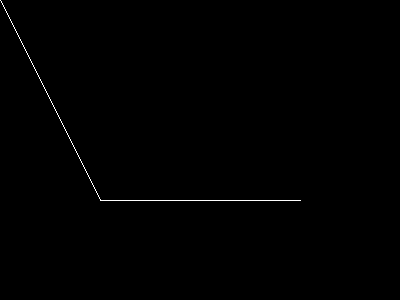In case you want to use an open polygon but are stuck with a PHP version prior to 7.2, a solution may be to 'backplot' your array to its original start. Say you have an array of pixels (below seperated by commas)
<?php
$arr = array();
for ($i = 0; $i < count($pixels); $i++) {
$pixel = explode(',', $pixels[$i]);
if (($pixel[0] > 0) && ($pixel[1] > 0)) {
$arr[] = $pixel[0];
$arr[] = $pixel[1];
}
}
imagepolygon($im, $arr, (count($arr) / 2), $otcolor);
?>
you can replace this by something like
<?php
$arr = array();
for ($i = 0; $i < count($pixels); $i++) {
$pixel = explode(',', $pixels[$i]);
$arr[] = $pixel[0];
$arr[] = $pixel[1];
}
// imageopenpolygon($im, $arr, (count($arr) / 2), $otcolor) is not possible, so...
for ($i = (count($pixels)-1); $i >= 0; $i--) {
$pixel = explode(',', $pixels[$i]);
$arr[] = $pixel[0];
$arr[] = $pixel[1];
}
imagepolygon($im, $arr, (count($arr) / 2), $otcolor);
?>imageopenpolygon
(PHP 7 >= 7.2.0, PHP 8)
imageopenpolygon — Draws an open polygon
Description
Signature as of PHP 8.0.0 (not supported with named arguments)
Alternative signature (deprecated as of PHP 8.1.0)
imageopenpolygon() draws an open polygon on the given
image. Contrary to imagepolygon(),
no line is drawn between the last and the first point.
Parameters
-
image A GdImage object, returned by one of the image creation functions, such as imagecreatetruecolor().
points-
An array containing the polygon's vertices, e.g.:
points[0] = x0 points[1] = y0 points[2] = x1 points[3] = y1 num_points-
Total number of points (vertices), which must be at least 3.
If this parameter is omitted as per the second signature,pointsmust have an even number of elements, andnum_pointsis assumed to becount($points)/2. color-
A color identifier created with imagecolorallocate().
Changelog
| Version | Description |
|---|---|
| 8.1.0 |
The parameter num_points has been deprecated.
|
| 8.0.0 |
image expects a GdImage
instance now; previously, a valid gd resource was expected.
|
Examples
Example #1 imageopenpolygon() example
<?php
// Create a blank image
$image = imagecreatetruecolor(400, 300);
// Allocate a color for the polygon
$col_poly = imagecolorallocate($image, 255, 255, 255);
// Draw the polygon
imageopenpolygon($image, array(
0, 0,
100, 200,
300, 200
),
$col_poly);
// Output the picture to the browser
header('Content-type: image/png');
imagepng($image);
?>The above example will output something similar to:

See Also
- imagepolygon() - Draws a polygon
+add a note
User Contributed Notes 1 note
marco at oostende dot nl ¶
7 years ago